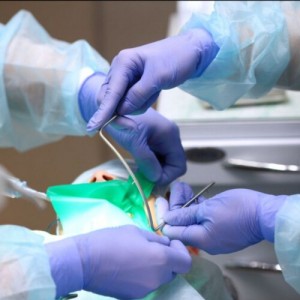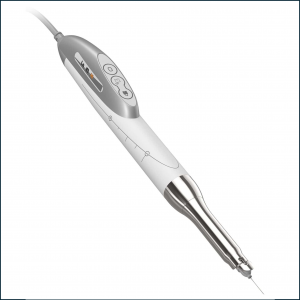
Factors Related to Patients' Anxiety Before and After Oral Surgery
Purpose
The purpose of this study was to identify factors that may contribute to anxiety of patients undergoing minor oral surgery before and after the operation.
Patients and Methods
A total of 120 patients who underwent minor oral surgery were included in the study. Each patient's anxiety was measured using Spielberger's State-Trait Anxiety Inventory and Corah's Dental Anxiety Scale immediately before, immediately after, and 1 week after the operation. Anxiety levels for each given situation about the surgery were determined using visual analog scales. The effects of various factors, such as demographic variables, previous dental experience, and postoperative complaints, on anxiety were also analyzed.
Results
Postoperative anxiety levels were significantly lower than the preoperative anxiety levels (P < .001). Patients recorded higher anxiety levels for “jaw becoming tired” and “collection of fluid in the mouth” than for “feeling pain during the operation” both before and after the operation. There was a positive correlation between pain expectation with preoperative anxiety and pain actually experienced during surgery with postoperative anxiety (P < .001). Whereas patients' trait anxiety and previous dental experience were correlated with preoperative anxiety (P < .001 and P < .05, respectively), no relationship with postoperative anxiety was found. The difficulty of the procedure was not correlated with anxiety immediately after the operation but was correlated with anxiety during the follow-up visit (P < .05). Postoperative complaints were related to the dental anxiety levels recorded 1 week after surgery (P < .05).
Conclusions
To reduce patients' anxiety, underestimated factors, such as jaw fatigue and fluid collection in the mouth, should be taken into account during oral surgery under local anesthesia. In the postoperative period, swelling and difficulty in eating, as well as pain, should also be considered in relieving patients' anxiety.
Authors: Mehtap Muglali, Nurgul Komerik
Source: https://www.sciencedirect.com/
 Read more
Read more
Oral Hygiene & Prevention 03 October 2025
Dental treatment planning and management for the mouth cancer patient
The need to deliver cancer treatment promptly often requires modification of ideal dental treatment plans.
Editorials 03 October 2025
To help stock the Filling Station, a food pantry open to anyone in our ASOD family who is experiencing food insecurity or needs help making ends meet, Adams School of Dentistry is holding a food...
Products 03 October 2025
From Scan to Smile: Aidite’s EZPRINT-P1 and Rapid 3 Deliver a Complete Digital Workflow
Digital dentistry thrives on precision, efficiency, and integration. Aidite has long been a leader in advancing these principles. With the introduction of the EZPRINT-P1 3D Printer, the company now...
Products 03 October 2025
Dentalhitec Americas recently announced the official U.S. launch of QuickSleeper5, following FDA clearance. Even prior to its American debut, demand from dentists for the QuickSleeper5.
News 03 October 2025
Excel Endodontics, a new specialty dental practice founded by endodontist Dr. Rachel Halpern, is proud to announce its official opening in Marlboro, New Jersey, along with the launch of its new...










